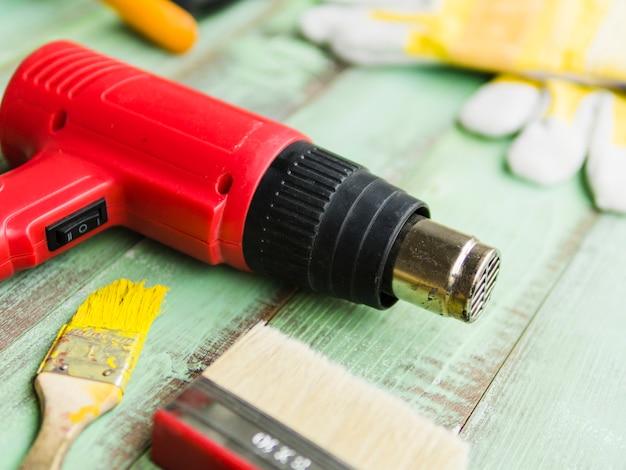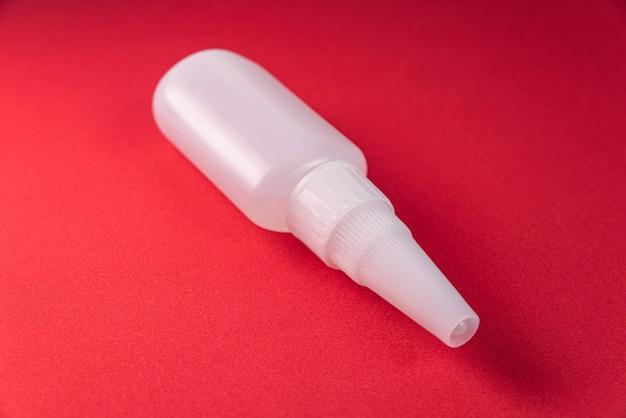Superglue is a handy adhesive that has become a trusted ally in various situations, from DIY crafts to quick fixes around the house. We often rely on its strong bond and fast drying properties. But have you ever wondered what happens if you expose superglue to heat? Can it be dangerous? In this blog post, we’ll dive into the world of superglue and uncover the answers to these burning questions.
You may have heard rumors that superglue contains cyanide or that heating it can release toxic fumes. We’ll explore the truth behind these claims and examine the effects of heat on superglue. So, if you’re intrigued by the idea of heating up this adhesive powerhouse or simply want to ensure your safety, keep reading to find out all you need to know about heating superglue.
Is It Safe to Heat Superglue
Superglue is a handy adhesive that can come to the rescue in various situations. We’ve all experienced the frustration of broken objects and the immediate desire to fix them as quickly as possible. But what if you find yourself in a situation where you think heating superglue might be the solution? Let’s explore whether it’s safe to heat superglue and what you need to know to avoid any sticky situations.
Understanding Superglue
Superglue, also known as cyanoacrylate adhesive, is a type of strong adhesive that forms an instant bond when in contact with moisture. It’s commonly used to repair broken objects or bond materials together. But before we dive into the safety of heating superglue, let’s take a moment to understand how it works.
When exposed to moisture, such as the humidity in the air or the water content in materials being bonded, superglue undergoes a chemical reaction that causes it to polymerize. This reaction forms chains of molecules, creating a strong and durable bond. So, in essence, superglue relies on moisture to set and harden.
The Dangers of Heating Superglue
Heating superglue can pose risks and should be approached with caution. Remember, superglue relies on moisture to cure, and subjecting it to heat can alter its properties, potentially leading to unpredictable behavior. Here are a few dangers to be aware of:
-
Toxic Fumes: When heated, superglue can release toxic fumes that can be harmful if inhaled. These fumes may cause irritation to the respiratory system and can even lead to headaches or dizziness. It’s crucial to use superglue in a well-ventilated area and avoid direct inhalation of the fumes.
-
Fire Hazard: Superglue is flammable, and heating it can increase the risk of fire. Extreme heat can cause the glue to ignite or release flammable vapors, creating a hazardous situation. Always exercise caution when working with any flammable substances.
Alternatives to Heating Superglue
Now that we’ve discussed the potential risks of heating superglue, it’s essential to consider alternative solutions to address your repair needs. Here are a few alternatives worth exploring:
-
Room Temperature Curing: Superglue is designed to bond at room temperature and can typically cure within minutes. You can ensure a successful bond by thoroughly cleaning and preparing the surfaces, applying the adhesive evenly, and holding the materials together for the recommended curing time.
-
Accelerating the Curing Process: If you’re looking for a faster bonding time, consider using accelerators specifically designed for cyanoacrylate adhesives. These accelerators promote faster curing without the need for heat, reducing the risk of potential hazards. Keep in mind that not all superglues are compatible with accelerators, so be sure to check the manufacturer’s instructions.
Stay Safe and Sound
While heat may hold the power to solve certain problems, heating superglue is not the solution when it comes to ensuring your safety and getting the desired results. Remember to avoid exposing superglue to excessive heat, as it can lead to toxic fumes and potential fire hazards. Instead, rely on the product’s intended use at room temperature or explore alternatives like accelerators to achieve your desired bond. By following these precautions, you’ll be well-equipped to tackle your repairs without any unnecessary sticky situations.
Frequently Asked Questions about Heating Superglue
Does Superglue Contain Cyanide
No, Superglue does not contain cyanide. It’s important to clarify this misconception. Superglue is composed of a chemical compound known as cyanoacrylate, which doesn’t contain any cyanide.
Is Superglue Toxic When Heated
When heated in small quantities, Superglue does not release toxic fumes. However, it’s always best to use caution and ensure proper ventilation when working with any heated substances to avoid inhaling potentially harmful vapors.
At What Temperature Does Superglue Fail
Superglue begins to lose its adhesive strength at around 180 degrees Fahrenheit (82 degrees Celsius). At higher temperatures, it may completely break down and fail to provide a reliable bond.
Can Nail Glue Start a Fire
Nail glue itself is not particularly flammable, but it is important to note that any heated substance, including nail glue, can potentially start a fire if exposed to an open flame or extreme heat for a prolonged period. Always handle heated materials with care and avoid exposing them to direct flames.
Can Superglue Be Melted
Yes, Superglue can be melted, but it’s not advisable for regular usage. Melting Superglue alters its chemical properties, reducing its adhesive strength. It’s best to use Superglue in its liquid or gel state as intended.
Does Heat Remove Gorilla Glue
Heat does not remove Gorilla Glue. Gorilla Glue is designed to withstand high temperatures and maintain its adhesive properties. Applying heat is not an effective method for removing Gorilla Glue.
What Glue Can Withstand High Temperatures
Several types of glue are specifically formulated to withstand high temperatures. Some heat-resistant options include silicone-based adhesives, ceramic adhesives, and high-temperature epoxy glues. These glues are suitable for projects that require bonding materials exposed to extreme heat.
What Is the Best Dental Glue
The best dental adhesive depends on individual needs and preferences. Dental adhesives, commonly known as dental glue or dental cement, come in different forms such as temporary or permanent adhesive. Dentists recommend consulting with a dental professional to determine the best dental glue for your specific requirements.
What Happens If Superglue Gets Hot
If Superglue gets hot, it can become more liquid and potentially lose some of its adhesive properties. It is crucial to keep Superglue at a stable room temperature to maintain its effectiveness.
Does Hot Water Dissolve Superglue
Hot water does not dissolve Superglue. Superglue is resistant to water and requires specific solvents like acetone to break down its adhesive bonds.
Is There a Non-Toxic Superglue
Yes, there are non-toxic alternatives to traditional cyanoacrylate-based Superglues available on the market. These adhesives are often labeled as “non-toxic” or “safe for children” and are formulated to be less harmful if accidentally ingested or inhaled. Always read the product label for safety information.
Is Loctite Super Glue Heat Resistant
Yes, Loctite Super Glue is heat resistant to a certain extent. It can withstand temperatures up to 180 degrees Fahrenheit (82 degrees Celsius) before its adhesive properties start to decline.
Is PVA Glue Fire Resistant
No, PVA glue is not inherently fire-resistant. PVA glue is water-based and combustible. It can burn if exposed to an open flame or high heat source.
Is It Normal for Nail Glue to Burn
No, it is not normal for nail glue to burn. Nail glue should not cause any burning sensation when applied correctly. If you experience discomfort or burning, it may indicate an allergic reaction or an improper application. Discontinue use and consult a healthcare professional if needed.
Is Super Glue Safe to Put in Mouth
No, it is not safe to put Super Glue in your mouth. Super Glue is an adhesive designed for external use only and should not be ingested. If accidentally consumed, seek immediate medical attention.
Does Acetone Melt Plastic
Yes, acetone can melt some types of plastics. It is crucial to use caution when working with acetone and avoid prolonged exposure to certain plastic materials, as it may cause them to soften, warp, or dissolve. Consult the manufacturer’s recommendations or test on a small inconspicuous area before using acetone on plastic surfaces.
What Is the Strongest Heat-Resistant Glue
One of the strongest heat-resistant glues available is epoxy adhesive. Epoxy is specifically formulated to withstand high temperatures and provides excellent bonding strength even in extreme heat conditions. However, always check the manufacturer’s instructions and recommendations for specific heat-resistance capabilities.
Can Super Glue Withstand Water
Yes, Super Glue can withstand water exposure, as it forms a strong bond even in moist conditions. However, it is not recommended for permanent underwater applications. There are specialized adhesive products designed specifically for underwater bonding.
Is Super Glue Supposed to Get Hot
No, Super Glue itself is not supposed to get hot. If you feel excessive heat while using Super Glue, it may indicate an incorrect application or a chemical reaction with certain materials. Use caution and ensure proper ventilation when working with any adhesive.
Is Super Glue Toxic if Inhaled
Inhaling Super Glue fumes in small amounts is generally not harmful. However, prolonged exposure or inhaling large quantities of fumes can be irritating to the respiratory system. Always use glue in a well-ventilated area and avoid directly inhaling the fumes.
What Glue Can Withstand 1000 Degrees
Silicone-based adhesives, such as high-temperature silicone sealants or RTV silicone gaskets, can withstand temperatures up to 1000 degrees Fahrenheit (538 degrees Celsius). These types of glue are commonly used in automotive, aerospace, and industrial applications.
Will Super Glue Ruin Electronics
Super Glue is not recommended for use on electronics. Its adhesive properties can potentially damage electronic components, circuitry, or delicate surfaces. It’s best to use specialized electronic adhesives specifically designed for bonding electronics.
Note: The information provided is for general guidance purposes only and should not replace professional advice. Always refer to the product label and manufacturer’s instructions for specific guidance on any adhesive or glue-related concerns.

